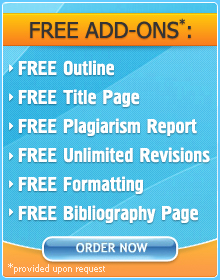Reflective task 1
There are many different ways in which a person may accommodate to the speech of another. Mentally list as many features as you can think of.
Reading Guide: Biesenbach-Lucas
Your readings focus on one particular communicative context:
• Participants: students (NS and NNS of English)
• Setting: University
• Channel: email
• Purpose: requests
In this context, a number of factors affect how language is used during the email interaction and how an interlocutor’s language use is perceived. Factors such as the following examples require careful ‘language management’ during the interaction: differences in the interlocutors’ status and social roles, an asynchronous channel (no visual help), an imposition made by the lower status participant on the higher status participant, L1/L2 considerations.
Biesenbach-Lucas’ study is a relatively early look (considering email had not been used for very long when the study was done) at how students make requests to their lecturers through the channel of email.
In the findings section you will discover that:
“Despite similar strategies, NSs and NNSs realized these strategies differently and preferred different types of politeness devices, pointing toward a mix of lack of linguistic flexibility and idiomatic expressions, unawareness of letter conventions transferable to email, and inability to select appropriate lexical modification among NNSs.” (p.74)
Now, you might think that you could have predicted this outcome, but if you take the time to read the article I am sure you will appreciate the level of analysis that went into reaching these results. It is this sort of information, grounded in rigorous fieldwork, that can help material designers and educators design appropriate learning materials.
_
Reflective task 2
Throughout your university years, have you ever had to write an email to a lecturer to make a request – e.g., for an extension of an assignment deadline, to request an appointment or a clarification?
Did you spend any time planning or thinking about how you would formulate the email? From a sociolinguistic perspective, what did you take into account as you composed the email? Which of the factors listed here was/were most important to you as you formulated the message?
(a) differences in the interlocutors’ status and social role
(b) an asynchronous channel (no visual help)
(c) an imposition on the higher status participant
(d) L1/L2 considerations
… or any other factors?
Additional Readings
1. Bjørge, A.K. (2007). Power distance in English lingua franca email communication. International Journal of Applied Linguistics 17 (1), 60-80
2. Economidou-Kogetsidis, M. (2011). Please answer me as soon as possible”: Pragmatic failure in non-native speakers’ e-mail requests to faculty. Journal of Pragmatics 43 (13), 3193-3215.
Reading Guide: Bjorge
Bjorge focuses on students’ use of openings (greetings) and closings (the sign-off) in emails from students from different countries to lecturers, while studing on an English-medium degree programme in Norway.
Her study brings in the dimension of cultural difference with respect to perceptions of relative power and distance in a relationship. Although students studying on an international programme use English as a lingua franca and all write emails to their lecturers in English, they bring with them their own expectations of power and distance to the relationship. If you are interested in learning more about the division between high and low power-distance cultures, read p.66.
An interesting point Bjorge makes in the conclusion is the following (p.76):
“When we look at the cultural background of the students, we see that national culture in terms of relatively high or low PD can be seen to influence how students handle rapport management. […] Despite being taught in an informal atmosphere, many students may feel uncomfortable with using informal and egalitarian forms in written correspondence. Uncertainty about what relationship is implied in the various forms of address and complimentary closes may lead to choosing options that are seen as “safe”.”
Reflective task 3
After reading the definition of high and low power-distance (PD) cultures in Bjorge (p.66), do you consider yourself to be from a high or low PD culture?
Have you ever worked or studied in the other type of culture? What adjustments did you have to make to your communication style to communicate appropriately in that other cultural environment?
Reading Guide: Economidou-Kogetsidis
On a personal note, this is probably my favourite article on the use of emails in student-lecturer interaction; having said that, I think it helps to have read the previous articles when approaching this one. The author brings together different points discussed in Biesenbach-Lucas and Bjorge, and takes them a step further in that she considers requests, openings and closings, the recipients’ perspective, and she provides a statistical analysis of her findings. In this study, we also get to see examples of students’ emails, and I have used some of these in the discussion forum task. She does make greater use of linguistic terminology, however, so don’t be surprised if you find it denser than the previous two.
The author’s findings complement and extend those in the previous studies (p.3209):
“The results of the study have shown that the NNS students’ e-mails are typically characterized by significant directness (particularly in relation to requests for information), an underuse of lexical/phrasal downgraders, an omission of greetings and closings and a considerable variation in the forms of address employed. It has been argued that many of these e-mails might become responsible for pragmatic infelicities as they appear to give the faculty no choice in complying with the request and fail to acknowledge the imposition involved. The significant degree of directness and the insufficient mitigation, along with the omission of a greeting and/or a closing, and the use of inappropriate forms of address, all contribute to a brusque e-mail effect which may sometimes verge on impoliteness.”
She also has clear pedagogial implications that are relevant to all of us (p.3210):
“This study’s results suggest that these NNS students could benefit from explicit e-mail instruction ‘‘as well as activities that involve discovery and raising of meta-pragmatic awareness’’ (Biesenbach-Lucas, 2007:75). As pedagogical intervention with respect to status-congruent e-mail interaction rests presently with individual EFL/ESL teachers, it also seems necessary that EFL/ESL books and curricula should also make room for explicit e-mail instruction.”
Are you looking for a similar paper or any other quality academic essay? Then look no further. Our research paper writing service is what you require. Our team of experienced writers is on standby to deliver to you an original paper as per your specified instructions with zero plagiarism guaranteed. This is the perfect way you can prepare your own unique academic paper and score the grades you deserve.
[meteor_slideshow slideshow="slide2"]Use the order calculator below and get ordering with idealtermpapers.com now! Contact our live support team for any assistance or inquiry.
[order_calculator]






 info@idealtermpapers.com
info@idealtermpapers.com






